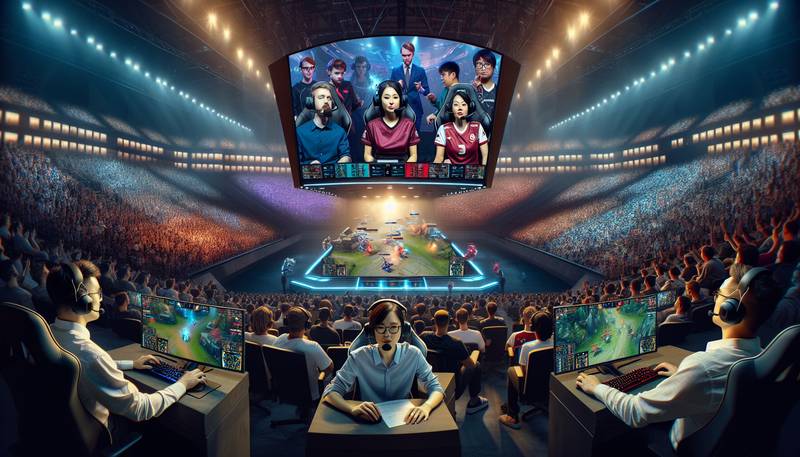The Rise of E-Sports: Gaming as a Professional Sport

Introduction
Gaming has come a long way since the days of Pac-Man and Pong. Once considered a pastime for nerds and children, gaming has now become a global phenomenon with a professional sports scene to match. E-Sports, or electronic sports, have exploded in popularity over the past decade, with professional gamers now making a living off of their skills, and tournaments drawing in millions of viewers. In this article, we will explore the rise of E-Sports, and how gaming has become a professional sport.
History of E-Sports
The origins of E-Sports can be traced back to the 1970s, where competitive gaming first began with tournaments for games like Space Invaders and Pac-Man. However, it wasn't until the 1990s that E-Sports truly began to take shape, with the rise of games like Street Fighter II and Doom. These games brought about the first organized competitions, with prizes and sponsors. As technology advanced, so did the gaming industry, and by the early 2000s, E-Sports had become a legitimate and lucrative career option for many gamers.
The Growth of E-Sports
The growth of E-Sports can be attributed to several factors. Firstly, the rise of the internet and online gaming has allowed players from all around the world to compete against each other, making it possible for E-Sports to reach a global audience. Additionally, the increasing popularity of streaming platforms like Twitch and YouTube has made it easier for fans to watch their favorite gamers compete live. Finally, the support from big-name sponsors and the creation of professional leagues have helped legitimize E-Sports as a professional sport.
E-Sports as a Professional Sport
Today, professional gamers can make a living off of their skills, with top players earning millions of dollars in prize money and sponsorships. E-Sports tournaments can draw in crowds of thousands, with millions more watching online. Games like League of Legends, Dota 2, and Overwatch have become household names, with professional leagues and teams competing at the highest level. Just like traditional sports, E-Sports has its own set of rules, regulations, and governing bodies, further cementing its status as a professional sport.
Challenges Facing E-Sports
Despite its growth and popularity, E-Sports still faces challenges in becoming fully accepted as a professional sport. One of the biggest obstacles is the lack of recognition from traditional sports organizations. Additionally, issues like cheating, match-fixing, and doping have plagued the industry, leading to concerns about the integrity of the sport. Furthermore, the high-stress nature of competitive gaming can take a toll on players' mental and physical health, leading to burnout and other health issues.
The Future of E-Sports
Despite these challenges, the future of E-Sports looks bright. The industry is expected to grow even more in the coming years, with new games, leagues, and opportunities for players emerging all the time. As E-Sports continue to gain mainstream attention, it is likely that we will see even more acceptance and recognition of gaming as a professional sport. The rise of E-Sports has shown that gaming is not just a hobby, but a legitimate and lucrative career for those with the skill and dedication to succeed.
Conclusion
The rise of E-Sports has been nothing short of remarkable. From its humble beginnings in arcades, gaming has become a global phenomenon, with professional gamers now making a living off of their skills. E-Sports has brought competitive gaming to a whole new level, with professional leagues, sponsored tournaments, and millions of dedicated fans. As the industry continues to grow and evolve, it is clear that gaming has become a professional sport in its own right, and we can only expect it to reach new heights in the years to come.


